In today's world, where energy conservation and sustainability are crucial, pressure cookers have emerged as a game-changer in the kitchen. These nifty devices not only save time and effort but are also a boon for energy efficiency. By reducing cooking time and cutting down on energy consumption, pressure cookers can help you save money on your electricity bills while also reducing your carbon footprint. In this blog, we will delve into the science behind pressure cookers, their benefits, and how they are changing the way we cook.
Table of Contents
MEYER Presta Tri-Ply With Outer Lid Pressure Cooker 5.5L
I. Introduction
Cooking is an essential activity that we all engage in every day. It is a process that requires energy, time, and resources. As we become more aware of our impact on the environment, it is crucial to consider the energy efficiency of our cooking methods. This is where pressure cookers come in.
Pressure cookers are a type of kitchen appliance that have gained significant popularity in recent years due to their ability to cook food quickly and efficiently. They work by trapping steam inside a sealed container, which raises the pressure and temperature inside. This, in turn, speeds up the cooking process, allowing you to cook meals in a fraction of the time it would take using traditional cooking methods.
The benefits of pressure cookers extend beyond convenience and time-saving. They are also an eco-friendly option that can help reduce energy consumption and, by extension, carbon emissions. Pressure cookers use less energy than conventional cooking methods, which means that they can help lower your electricity bills while also reducing your carbon footprint.
In this blog, we will explore the science behind pressure cookers, how they work, and their benefits for energy efficiency in the kitchen. We will also discuss other benefits of using pressure cookers, such as their nutritional advantages and versatility. Additionally, we will provide tips on how to use a pressure cooker safely and effectively. By the end of this blog, you will have a thorough understanding of the advantages of pressure cookers and how they can revolutionize the way you cook while also contributing to a more sustainable future.
II. How Pressure Cookers Work
A. Overview of pressure cooker mechanism
Pressure cookers are sealed cooking pots that trap steam inside to raise the pressure and temperature inside. They have a pressure release valve and a pressure regulator to control the pressure inside the pot. When you add food and liquid to the pot and heat it up on the stove, the liquid begins to boil and produce steam. The steam raises the pressure inside the pot, which in turn increases the temperature. The high temperature and pressure help cook food quickly, making it a great time-saving option for busy households.
B. Explanation of how pressure cookers save energy
Pressure cookers save energy by using high pressure to cook food quickly, which reduces cooking time and energy consumption. This means that you can cook meals faster using less energy compared to traditional cooking methods. Additionally, because pressure cookers use less water, they also require less energy to heat up the liquid, further reducing their energy consumption. Pressure cookers also use less heat than traditional cooking methods, which means they emit less heat into the kitchen and require less air conditioning to cool the space.
C. Comparison with traditional cooking methods
When compared to traditional cooking methods such as boiling, baking, or frying, pressure cookers are significantly more energy-efficient. For example, boiling a pot of potatoes on a stove can take up to 20 minutes, while a pressure cooker can cook them in less than 10 minutes. In addition to the time savings, pressure cookers use less energy to cook the potatoes, which translates into a lower electricity bill. Compared to baking, pressure cookers use less energy to heat up the cooking vessel and maintain a consistent temperature.
Overall, pressure cookers are an excellent choice for those looking to reduce their carbon footprint and save on energy bills. They offer a time-saving, convenient option for cooking meals quickly, while also contributing to a more sustainable future.
III. Benefits of Pressure Cookers for Energy Efficiency
A. Reduced cooking time and energy consumption
One of the key benefits of pressure cookers for energy efficiency is their ability to cook food quickly using less energy. Pressure cookers use high-pressure cooking to reduce cooking times significantly compared to traditional cooking methods. This means that less energy is required to cook meals, leading to significant energy savings. Additionally, pressure cookers require less water to cook food, which reduces the amount of energy needed to heat up the liquid. Overall, pressure cookers can reduce energy consumption by up to 70%.
B. Impact on electricity bills and carbon footprint
The energy savings provided by pressure cookers can have a significant impact on electricity bills and carbon footprints. By reducing energy consumption, households can lower their electricity bills and save money in the long run. Additionally, because pressure cookers emit less heat into the kitchen, they reduce the need for air conditioning, which can further reduce energy consumption. In terms of carbon footprint, the energy savings provided by pressure cookers can contribute to a more sustainable future by reducing the amount of greenhouse gas emissions associated with energy consumption.
C. Case studies and statistics
Several case studies and statistics demonstrate the energy-saving benefits of pressure cookers. For example, a study by the National Renewable Energy Laboratory (NREL) found that pressure cookers can reduce energy consumption by up to 70% compared to traditional cooking methods. The study involved cooking black beans using a pressure cooker and a traditional stovetop method. The pressure cooker used 1.5 kilowatt-hours (kWh) of energy to cook the beans, while the stovetop method used 4.8 kWh. The study concluded that pressure cookers are a more energy-efficient option for cooking beans and other foods that require long cooking times.
Another study by the University of California, Berkeley found that pressure cookers can reduce cooking time by up to 70% and reduce energy consumption by up to 50%. The study involved cooking chicken curry using a pressure cooker and a traditional stovetop method. The pressure cooker cooked the curry in 15 minutes using 0.62 kWh of energy, while the stovetop method took 45 minutes and used 1.23 kWh of energy. The study concluded that pressure cookers are a more energy-efficient and time-saving option for cooking meals.
Furthermore, a study conducted in India found that the use of pressure cookers led to a significant reduction in energy consumption and carbon emissions. The study involved comparing the energy consumption and carbon emissions of households using pressure cookers and those using traditional cooking methods. The results showed that households using pressure cookers consumed 24% less energy and emitted 22% less carbon dioxide compared to those using traditional cooking methods.
Overall, these case studies and statistics highlight the significant impact that pressure cookers can have on energy efficiency and sustainability. By reducing cooking time and energy consumption, pressure cookers can contribute to lower electricity bills, reduced carbon footprints, and a more sustainable future.
In conclusion, pressure cookers offer significant benefits for energy efficiency, including reduced cooking time and energy consumption, lower electricity bills, and a reduced carbon footprint. With their ability to cook food quickly and efficiently, pressure cookers are an excellent choice for households looking to save time, money, and energy while also contributing to a more sustainable future.
IV. Other Benefits of Pressure Cookers
A. Nutritional Benefits
Pressure cookers offer several nutritional benefits that traditional cooking methods cannot match. The high-pressure cooking method helps to retain the vitamins and minerals in the food, which are often lost during traditional cooking methods such as boiling, frying, or baking. For example, a study conducted on broccoli showed that pressure cooking retained more of the vegetable's vitamin C and antioxidants than boiling or microwaving.
Additionally, pressure cookers can break down tough fibers in meat and vegetables, making them easier to digest and increasing the availability of nutrients. For example, pressure-cooking beef can reduce cooking time by 30-40% while also making the meat tender and easier to digest. Similarly, pressure cooking legumes like beans and lentils can reduce their cooking time by up to 70%, making them easier to digest and increasing their nutritional value by making the nutrients more available to the body.
B. Versatility and Convenience
Pressure cookers are versatile and convenient cooking tools that offer a wide range of benefits. For example, pressure cookers can be used to cook grains, meats, soups, stews, and vegetables. Additionally, pressure cookers can be used to cook multiple items at once, making meal preparation easier and more efficient.
One of the most significant benefits of pressure cookers is their convenience. Pressure cookers require less monitoring than traditional cooking methods, allowing for more time to focus on other tasks or relax while the food is cooking. For example, when cooking beans traditionally, one would have to soak the beans for several hours and then cook them for several hours on the stove. This process requires constant monitoring to ensure the beans don't boil over, which can be time-consuming and stressful. With a pressure cooker, one can simply add the soaked beans and water to the pressure cooker, set the cooking time, and relax or work on other tasks while the beans cook.
Overall, pressure cookers offer a convenient and efficient way to prepare healthy and delicious meals. By preserving the nutrients in food and providing a versatile and convenient cooking method, pressure cookers can help households to prepare meals quickly and easily while also maintaining their nutritional value.
V. How to Use a Pressure Cooker
Pressure cookers can be a valuable addition to any kitchen, but it's important to use them safely and correctly. Here are some tips for using a pressure cooker:
A. Safety Precautions and Instructions
Pressure cookers work by trapping steam inside the pot to increase pressure and raise the boiling point of water. This process can be dangerous if the cooker is not used correctly. Here are some safety precautions and instructions to follow:
- Always read the instruction manual before using your pressure cooker.
- Check the pressure release valve and gasket before each use to ensure they are clean and in good condition.
- Never overfill the pressure cooker, and always use the minimum amount of liquid specified in the recipe.
- Never open the pressure cooker before the pressure has been released completely.
- Always use heat-resistant gloves or a towel to handle the pressure cooker and its lid.
- Never use a damaged or cracked pressure cooker.
B. Tips for Beginners
If you're new to pressure cooking, here are some tips to help you get started:
- Start with a simple recipe: Begin with a simple recipe to familiarize yourself with the pressure cooker's functions and settings.
- Don't overfill the cooker: Only fill the pressure cooker up to two-thirds full to prevent food from spilling out during cooking.
- Use the minimum amount of liquid: Only use the minimum amount of liquid required by the recipe, as too much liquid can cause the food to be too watery.
- Don't open the pressure cooker too soon: Wait until the pressure has been released entirely before opening the pressure cooker.
- Use high-quality ingredients: Using high-quality ingredients will ensure a better-tasting dish.
- Don't be afraid to experiment: Once you get the hang of pressure cooking, don't be afraid to experiment with different recipes and cooking techniques.
By following these safety precautions and tips for beginners, you can safely and confidently use your pressure cooker to prepare delicious and healthy meals.
Some FAQs related to the energy efficiency of pressure cookers:
How do pressure cookers save energy?
Pressure cookers save energy by cooking food at a higher temperature and pressure, which reduces the cooking time by up to 70%. This means less time and energy are needed to cook the same amount of food compared to traditional cooking methods.
Can pressure cookers be used on all types of stovetops?
Most pressure cookers can be used on gas, electric, and induction stovetops. However, it's important to check the manufacturer's instructions to ensure compatibility with your specific stovetop.
Do pressure cookers require a lot of water to function?
No, pressure cookers require less water than traditional cooking methods because they create a sealed environment that traps steam, which then cooks the food. This means that less water is needed to create steam and the cooking time is reduced.
Are pressure cookers safe to use?
Yes, pressure cookers are safe to use if you follow the manufacturer's instructions and safety precautions. It's important to release the pressure before opening the lid and to check the pressure release valve and gasket before each use.
Can pressure cookers be used for all types of food?
Pressure cookers can be used for a variety of foods, including meats, vegetables, grains, and soups. However, some delicate foods, such as fish and eggs, may not be suitable for pressure cooking as they can easily overcook.
VI. Conclusion
In conclusion, pressure cookers are a great addition to any kitchen for their energy efficiency, convenience, and versatility. By reducing cooking time and energy consumption, pressure cookers can help save money on electricity bills and reduce your carbon footprint. Additionally, pressure cookers offer nutritional benefits by retaining more nutrients in the food, and they are easy to use and require less cleanup than traditional cooking methods.
Overall, if you're looking to reduce your energy consumption and save time in the kitchen, a pressure cooker is an excellent investment. By following the safety precautions and tips for beginners, you can safely and confidently use your pressure cooker to prepare delicious and healthy meals.
We highly recommend considering a pressure cooker for your kitchen to take advantage of its many benefits, including energy efficiency, convenience, and versatility. So, go ahead and give it a try, and you'll be surprised at how much time and energy you can save while still enjoying delicious and healthy meals.
MORE FROM BLOG
Top Collections
A Guide to Different Types of Pressure Cookers: From Multi-Cookers to Canning Pressure Cookers
2 Items



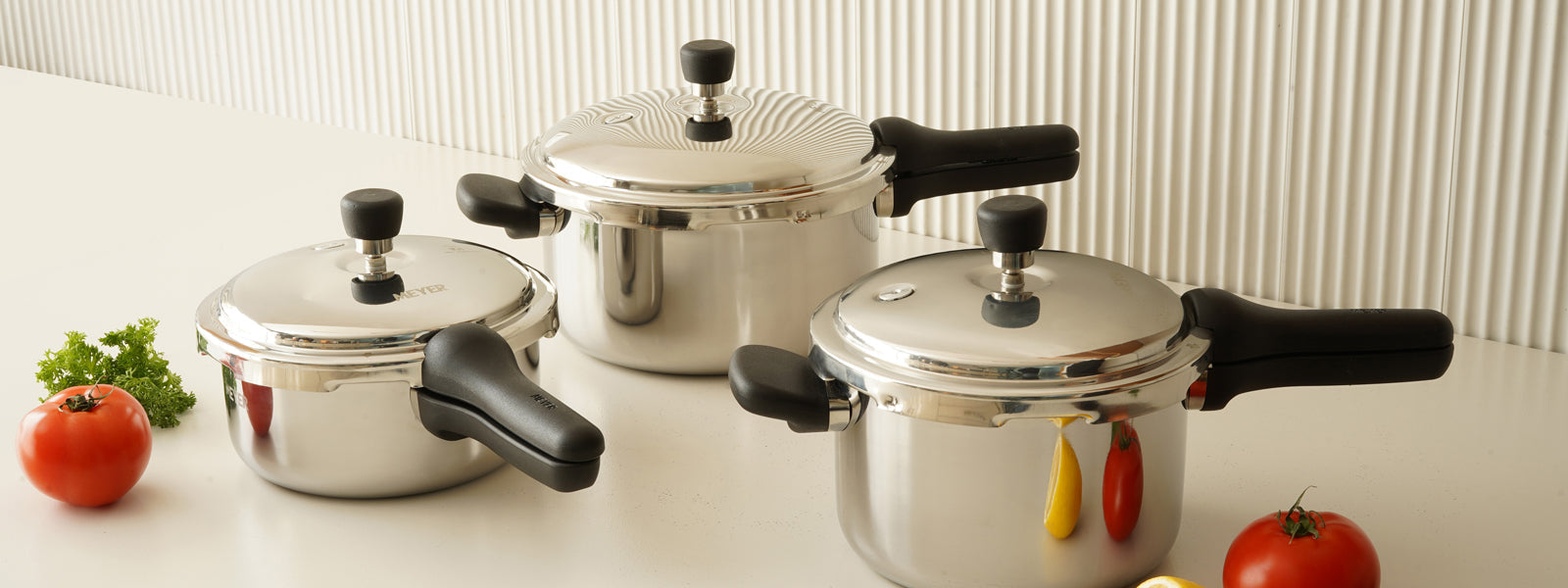
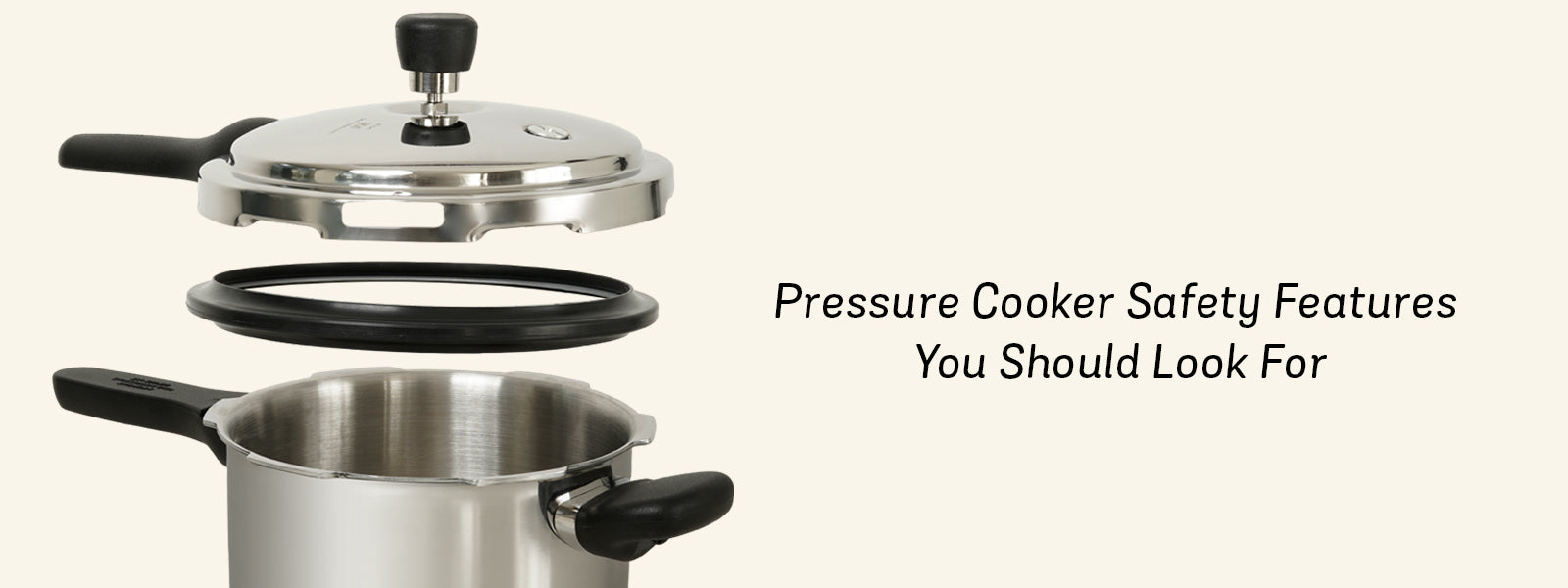
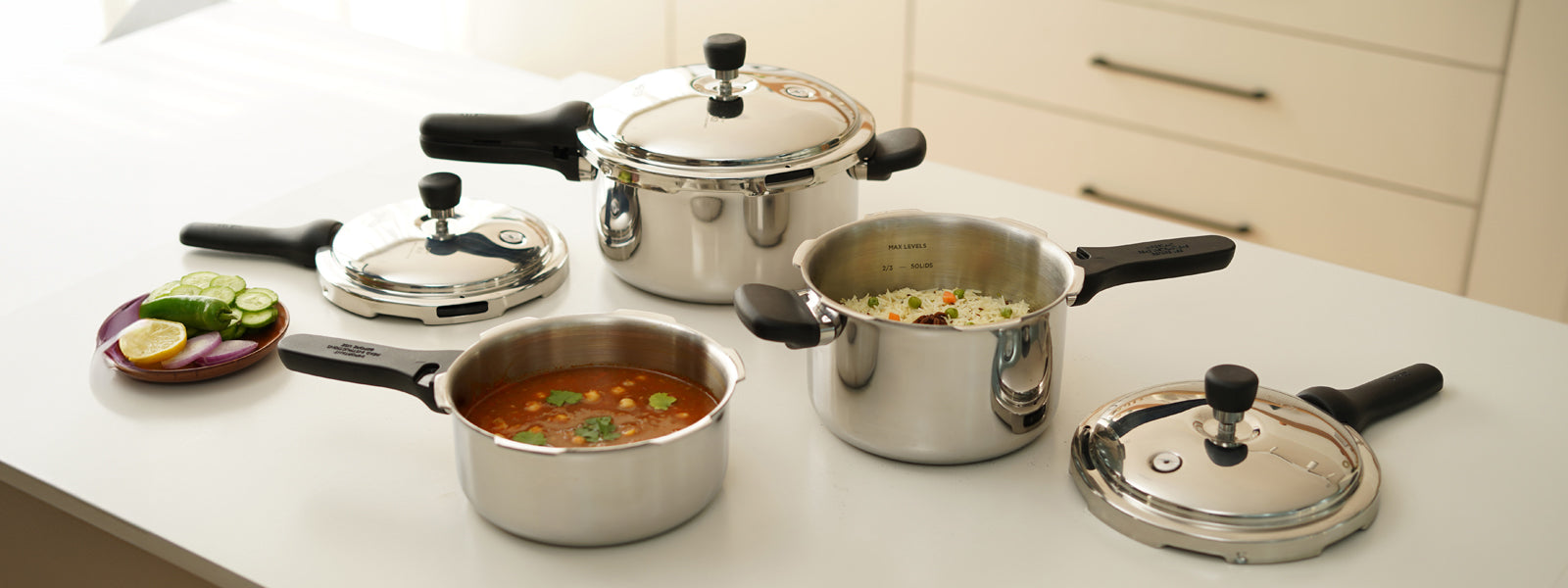

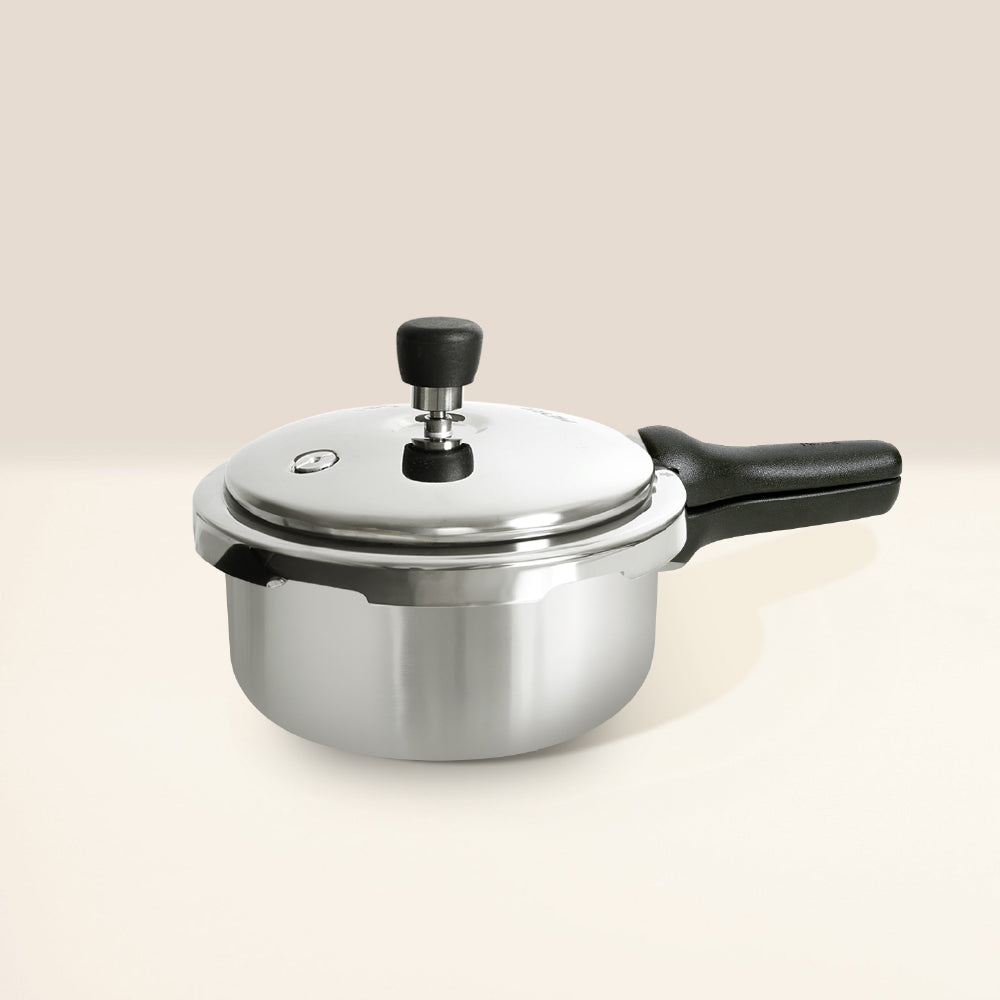
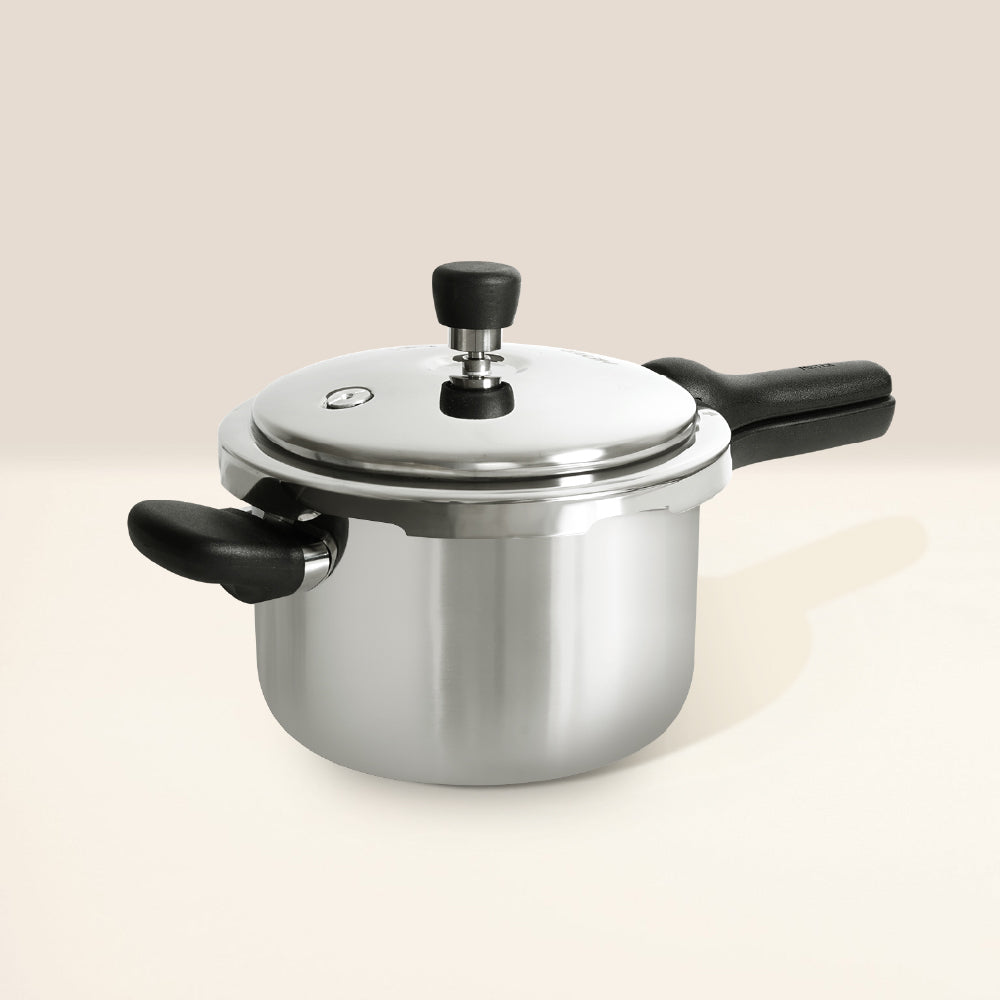




Leave a comment